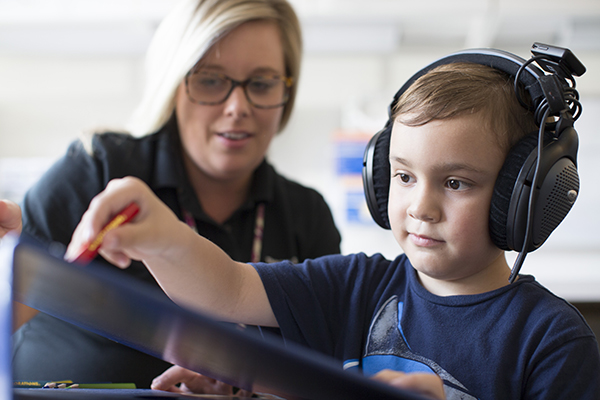
Therapeutic Listening is a treatment approach which combines sound-based intervention with sensory integrative treatment techniques. It provides auditory stimulation, through the use of enhanced and specially recorded music, as a means of accessing the nervous system and stimulating areas of the brain used in listening and processing sensory information. Therapeutic Listening is to be used as part of a daily home program, in combination with additional sensory integrative activities, to achieve goals and skills. The Therapeutic Listening program uses a variety of music, chosen specifically for each child to meet his/her particular needs.
Benefits
When used appropriately in combination with additional sensory applications, Therapeutic Listening has been found to assist in attainment of skills such as:
- Praxis, motor planning, bilateral coordination, and fine motor skills
- Focus and attention
- Self-regulation
- Organized behavior
- Postural control
- Oral motor skills and articulation
- Social skills and communication
- Sensory defensive behaviors
- Eating and sleeping patterns
- Response to sounds and verbal directions
Children who have difficulties in any of the above areas may benefit from Therapeutic Listening. Therapists trained in Therapeutic Listening complete an evaluation to determine if the individual would benefit from the program.
The Therapeutic Listening Program begins with the child listening to the requested music two times per day, for 30 minute sessions, 7 days per week. Music selections are individualized, based on the child’s specific needs and goals of the intervention. The Therapeutic Listening Program will typically last from 8 weeks to several months, based upon the child’s response and needs. When listening, the child may engage in play or sensory activities or listen quietly. Additional sensory and movement activities are used to assist in increasing the benefits of listening and skills related to the child’s goals.
The Therapeutic Listening Programming requires the use of specific equipment to achieve benefits of listening. The therapists work with the families to obtain the necessary equipment for the program. Please consult with an Occupational Therapist if you have a child who you think may benefit from Therapeutic Listening.

